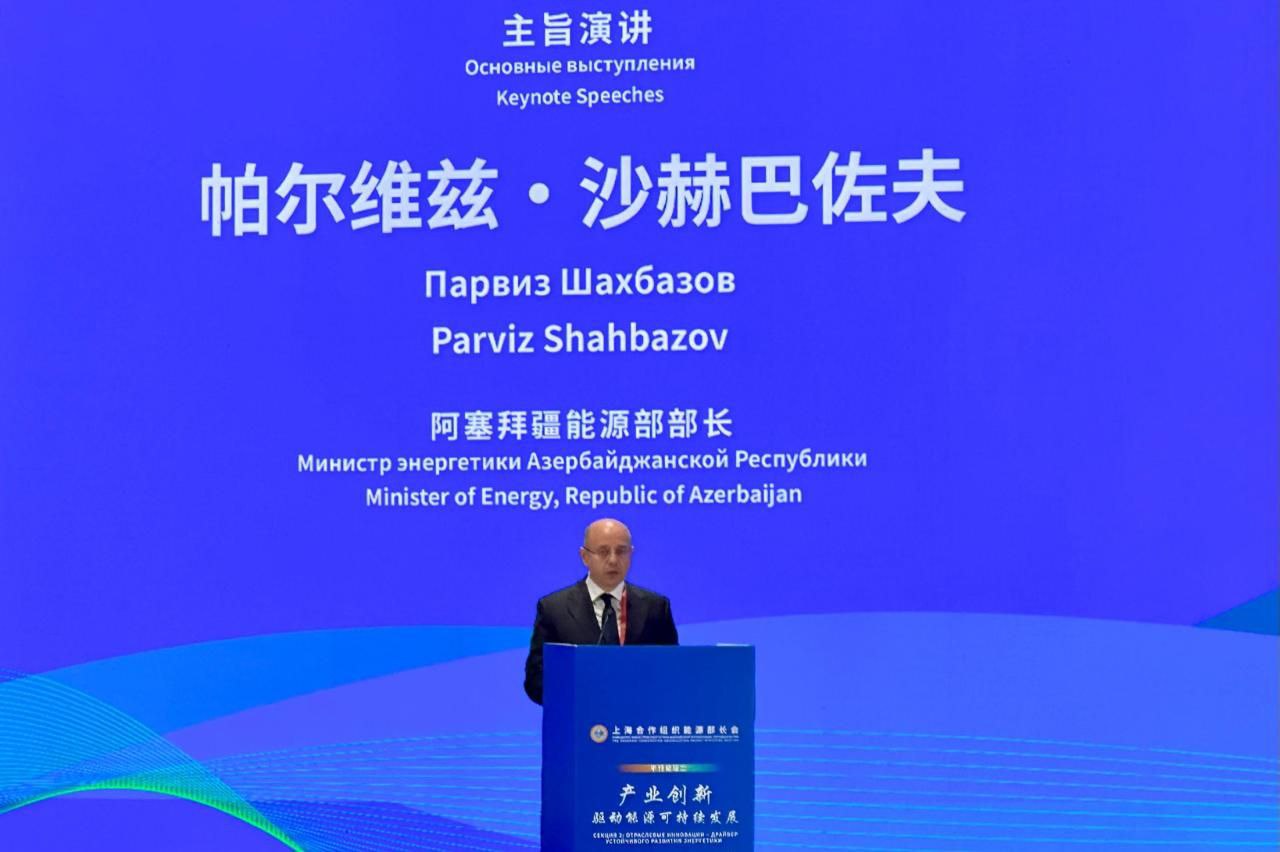BAKU, Azerbaijan, June 26. The construction of wind and solar power plants in Azerbaijan is planned to increase the share of installed renewable energy capacity to 38 percent over the next five years and approximately 43 percent by 2035, Azerbaijan’s Minister of Energy Parviz Shahbazov said, Trend reports.
He made the remark during the opening ceremony of the Shanghai Cooperation Organization (SCO) Energy Ministers’ Meeting and at the forum titled “Industrial Innovation as a Driving Force for Sustainable Energy Development” held in Ningbo, China.
The minister noted that the partnership with China is of particular importance for realizing the 157 GW wind energy potential of the Caspian Sea and the creation of green energy corridors based on Central Asia’s renewable energy resources.
“The joint project of Azerbaijan, Kazakhstan, and Uzbekistan—the Trans-Caspian Green Energy Corridor—when integrated with the Caspian–Black Sea–Europe and Azerbaijan–Türkiye–Europe green energy corridors and interconnectors, will enable the large-scale and continuous transmission of renewable energy along the Middle Corridor, which links Asia and Europe.
Green energy interconnectors are critical infrastructure elements that help deliver geographically uneven and naturally variable solar and wind energy to regions where it is needed, support the efficient use of renewable energy, and ensure mutual resilience between energy systems.
Within this framework, interregional integration is poised to
serve as a pivotal conduit for the transfer of green energy
originating from SCO nations to Azerbaijan, subsequently
facilitating its flow to the Turkish and European markets.
This collaboration, alongside augmenting technology dissemination
and capital infusion avenues for China, will function as a conduit
to bolster both the 'Green Silk Road' initiative and the energy
framework of the SCO with measurable outcomes,” he elucidated.
The minister articulated his perspectives on the pivotal function
of innovation within the global energy landscape, which is
currently experiencing significant metamorphosis in reaction to
imperatives such as energy security, climate obligations, and
economic viability.
He underscored that the paradigm of Azerbaijan's green energy
zones—encompassing strategic initiatives to elevate the proportion
of installed renewable capacity to 38 percent within a quinquennial
framework and to roughly 43 percent by the year 2035, alongside the
deployment of offshore wind energy and interconnector ventures—is
fundamentally anchored in innovation.
Stay up-to-date with more news on Trend News Agency's WhatsApp channel







